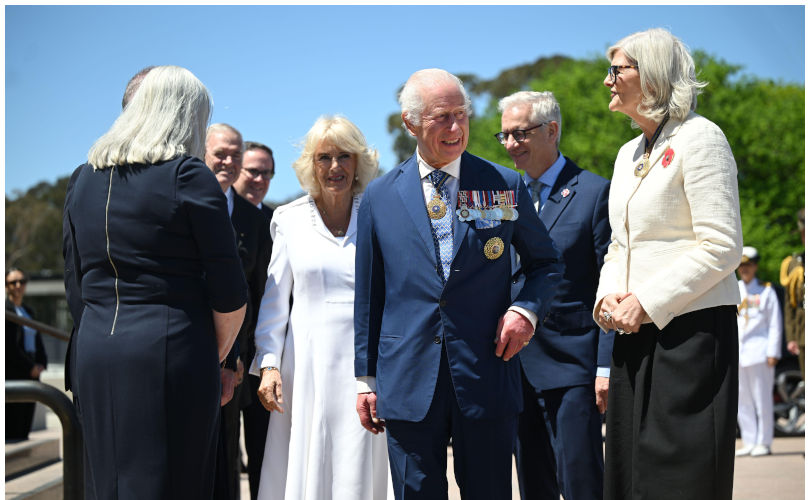Boiling the frog of constitutional reform
April 10, 2025
The case to sever the constitutional link between Australia and the UK monarchy is self-evident to most. And, to be clear, this link is expressly to the monarch of the UK in that capacity, not to some titularly separate notional monarch of Australia.
But today the necessary referendum to accomplish this severance in one step would likely again lose – not on merit, but in the face of contemporary opportunistic, divisive, oppositionist politics wielded for imaginary short-term partisan advantage rather than national interest.
But we should not just stop there.
It is not generally realised, but the 1901 constitution contained — and still contains — a number of explicit linkages to the monarch that were designed to curb the risk — to the UK — of excessive Australian independence. Only one of them has been moderated but only by convention. In 1930, Scullin faced down the then king and UK Government to establish the de facto right of Australia to nominate an appointee as governor-general, rather than, as in the past, the appointee being an “upper class” Briton selected by the monarch with UK Government advice.
Even subsequently, this has not gone unquestioned. The current king, as a callow youth, actively sought appointment as governor-general and, even in later mature middle age, lamented that what he still thought of as his “help” had been unwelcome.
Since the 1930s, little more has been done to further modernise the link between the monarch and the nation. Monarchs have protested that they act only on the advice of “their”Australian ministers. But the king’s 2024 visit gives cause for doubt; it was patently designed to promote him and the monarchy, rather than to serve any Australian interest, let alone to modernise the monarchy as this king had earlier foreshadowed. Designed by “the palace for the palace” perhaps.
What then might be done now?
Minor reforms, both administrative and constitutional, could have some prospect of early success.
First, appointment of the governor-general. By convention the nomination of appointees has become a unilateral right of the prime minister (who is unmentioned in the constitution). Democracy, and the democratic supremacy of the Parliament, would be strengthened if nominees were to be endorsed by the Parliament. This could be achieved by convention, or better by legislative constraint on the PM.
Next the military. The governor-general is commander-in-chief of the Armed Forces. But only as the UK monarch’s representative. This carries the risk of divided loyalties within the armed forces. A risk exacerbated by the extra-constitutional practice of scattering honorary Australian military appointments among the monarch’s UK relatives, and the military’s sometime claim to a “special relationship” with the monarch. We should limit the monarch’s role in our armed forces solely to the arm’s length constitutional link to the governor-general and terminate all other related royal appointments, colours, associations, and terminology.
Next allegiance. The controversial intervention of Senator Lidia Thorpe during the king’s 2024 address in Parliament House highlighted that Australian parliamentarians are required to swear oaths of allegiance – to the king of the UK. Not to a king of Australia. Not to Australia. Oaths that are unpalatable to some.
It would be a low-cost, minor and largely uncontroversial amendment to permit alternative oaths to be made to the service of Australia.
Then there is the residual constitutional silver bullet of restraint on the independence of Australia. Under s59, the UK monarch has the time-limited, but otherwise legally unfettered, power to disallow Australian legislation. Take that, upstart colonials! Clearly, use of this power is now unthinkable. But its existence is still a blot on Australia’s independent democracy and the supremacy of our Parliament. Its repeal should be another uncontroversial, low-cost, modernisation of our relationship with the monarchy.
Foundational to the constitution is the role of the monarch as an element of the Parliament, notionally at least co-equal, if not superior, to the two elected chambers, and the establishment of executive power as emanating from the monarch through the governor-general to a subordinate Parliament and executive. It would be consistent with the democratic supremacy of the Parliament to amend these provisions so that the monarch does not seem to come above the Parliament or the executive, or between them – although this change may be a step too far too early.
Lastly, although not a matter of the monarchy, we must excise the offensive s25 of the constitution. It provides for unthinkable state-based racial discrimination in voting. Not even Pauline Hanson could object to that going.

